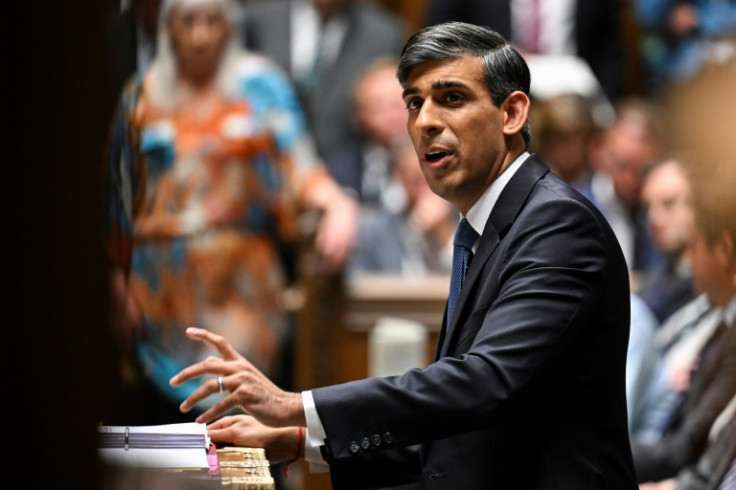
A UK general election is to be held on July 4, British media reported on Wednesday quoting sources, as Prime Minister Rishi Sunak met with his top ministers.
Political editors at the BBC, ITV, Sky News and The Guardian all said Sunak would name the date in a Downing Street statement after the cabinet meeting.
The poll will be the first time Sunak, 44, faces the public while in charge, after he was appointed leader of the largest party in parliament in an internal Conservative vote in October 2022.
The vote -- the third since the Brexit referendum in 2016 -- comes as Sunak seeks to capitalise on better economic data to woo voters hit by cost-of-living rises.
Halving inflation within a year from historic highs of above 11 percent at the end of 2022 was one of the former financier's five key pledges.
That happened last year and on Wednesday rates slowed to a near three-year low at 2.3 percent in March, prompting finance minister Jeremy Hunt to declare: "This is proof that the plan is working."
Political commentators have increasingly suggested that Sunak, trailing badly in the polls to the main opposition Labour party, could try to seek a bounce from the healthier outlook.
But critics point out that is more to do with changes in the global economy than government policy.
Sunak has previously batted back all efforts to name a date, saying only that he would go to the country in the second half of this year.
Speculation mounted again after Sunak and his top officials on Wednesday refused to deny fresh talk that he was about to call an election on the back of the more positive data.
Rumours went into overdrive when Foreign Secretary David Cameron was recalled from a trip to Albania and Defence Secretary Grant Shapps delayed a trip to eastern Europe to attend a cabinet meeting.
Hunt also cancelled a scheduled television interview for Wednesday evening, ITV's political editor said, as journalists, photographers and camera crews flocked to Downing Street.
The economy -- hit by external factors such as Covid and more self-inflicted wounds such as Brexit and Liz Truss -- will be a key battleground.
But Sunak faces an uphill task to convince the public that the country's finances are still safe in Tory hands after 14 years in power.
Sunak has tried to steady the ship since succeeding Truss, whose 49-day tenure ended after her unfunded tax cuts sent household bills soaring, spooked the markets and crashed the pound.
Immigration -- another key issue since the government's vote-winning pledge to "take back control" of Britain's borders after Brexit -- remains politically troublesome.
Sunak -- the Tories' fourth leader since 2016 -- has talked tough to "stop the boats" of irregular migrants crossing the Channel from northern France.
But his controversial scheme to deport asylum seekers to Rwanda has yet to get off the ground, as costs and legal challenges mount.
Resurgent Labour, under former human rights lawyer Keir Starmer, has meanwhile been consistently ahead of the Tories by 20 points for almost two years now.
That has sparked talk of a landslide similar to the first of Tony Blair's three election victories -- and even a near wipe-out for the Tories.
Starmer, 61, and his top team have in recent weeks been putting flesh on the bones of their election pitch, nearly five years after the party was thrashed by Boris Johnson and his vow to "Get Brexit Done".
Last week, Starmer set out six key pledges notably more electorally friendly than the hard-left policies of his divisive predecessor Jeremy Corbyn.
Starmer, a pro-European centrist, promised economic stability, shorter health service waiting times and a new border security command to tackle irregular immigration.
He also vowed to establish a publicly-owned clean energy company, crack down on anti-social behaviour with more neighbourhood police and recruit 6,500 new teachers.







